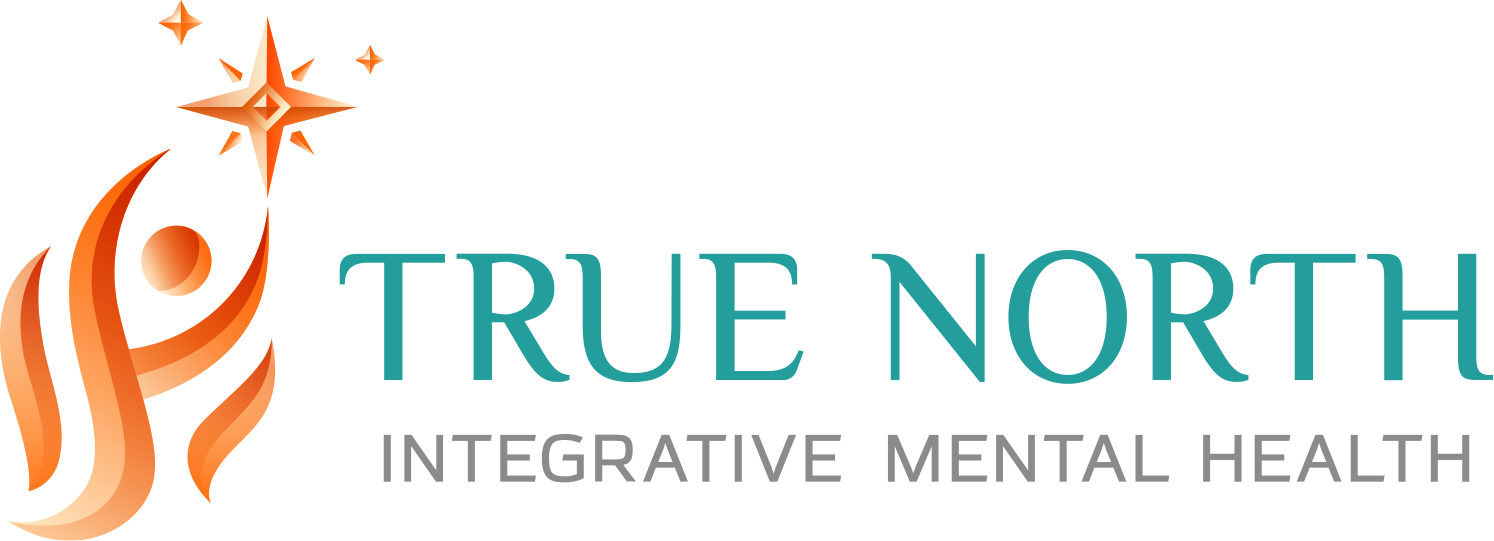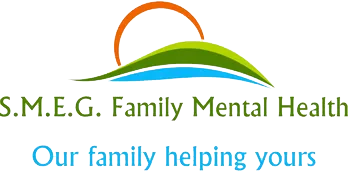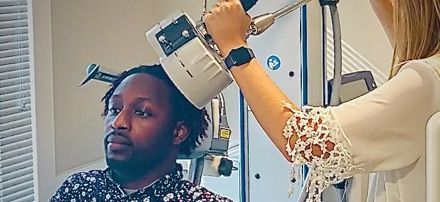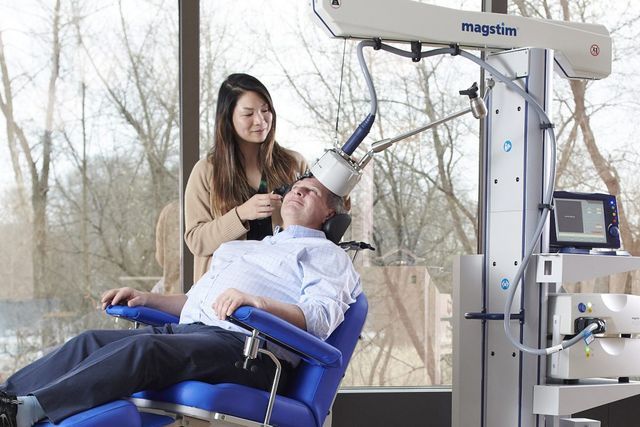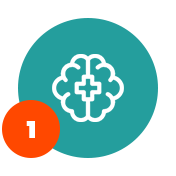TMS Clinic & Treatment For Depression in Greenville NC
Depression is a mental health condition that affects millions of people in the United States. While traditional treatment methods such as therapy and medication can be effective for many individuals, some people may not respond to these conventional methods.
For those who have not found relief with traditional treatment, transcranial magnetic stimulation (TMS) has emerged as a promising alternative therapy for depression.
What is Depression?
Depression is a common and serious mental health that affects how one feels, thinks, and acts in a negative manner. It affects approximately one in 15 adults–about 6.7% in any year.
Additionally, one in six people (16.6%) can go through depression at any point in their life. This mental health condition can happen anytime, however, it initially appears during the late teens to mid-20s, on average.
Signs & Symptoms of Depression
Depression is a mental health condition that causes a persistent feeling of sadness and loss of interest. It affects how one feels, thinks, and behaves, which can lead to various emotional and physical problems.
Identifying the signs and symptoms of depression is crucial for seeking appropriate treatment and support. Because depression can manifest in various ways, and it's important to understand that everyone's experience is differenet. However, some common symptoms include persistent feelings of sadness or emptiness, loss of interest or pleasure in activities, changes in sleep patterns (either insomnia or excessive sleeping), fatigue, feelings of worthlessness or guilt, difficulty concentrating, and changes in appetite. See our top 5 symptoms highlighted below.
Our Helpful Links
Schedule a Consultation
Get help with depression today!
It's important to know that you are not alone.
TMS Therapy Supports Mental Wellness
- Depression
- Lack of Joy
- Sadness and Despair
- Low Mood
- Lethargy
- Insomnia
- Oversleeping
- Social Isolation
- Self-Harm
- Substance Abuse
- Suicidal Ideation
- Alcoholism
Top 5 Most Common Symptoms of Depression
It's essential to seek professional help and support if you or someone you know is experiencing symptoms of depression. Effective treatments such as therapy, medication, and support groups can help individuals with depression manage their symptoms and improve their quality of life.

How Does TMS Help Depression?
Transcranial Magnetic Stimulation (TMS) therapy is a non-invasive brain stimulation technique that has shown promise in treating depression. TMS therapy involves the use of a magnetic field to stimulate specific areas of the brain, which can improve the symptoms of depression by altering the neural circuits involved in the disorder. In particular, TMS therapy can target the prefrontal cortex, which is involved in emotional regulation and has been shown to be under-active in individuals with depression.
By stimulating this area of the brain, TMS therapy can improve emotional regulation and decrease symptoms of anxiety and depression associated with depression. TMS therapy is generally considered safe and well-tolerated, making it a promising treatment option for individuals with depression who have not responded to other treatments.
How Does Transcranial Magnetic Stimulation for Depression Work?
Transcranial Magnetic Stimulation (TMS) therapy is a non-invasive brain stimulation technique that has shown promise in treating depression. TMS therapy involves the use of a magnetic field to stimulate specific areas of the brain, which can improve the symptoms of depression by altering the neural circuits involved in the disorder. In particular, TMS therapy can target the prefrontal cortex, which is involved in emotional regulation and has been shown to be underactive in individuals with depression.
By stimulating this area of the brain, TMS therapy can improve emotional regulation and decrease symptoms of anxiety and depression associated with depression. TMS therapy is generally considered safe and well-tolerated, making it a promising treatment option for individuals with depression who have not responded to other treatments.

Why Choose True North IMH for TMS Depression Treatment?
How to Prepare for
TMS Therapy
To prepare for a TMS appointment for depression treatment, patients should avoid alcohol and drugs that can affect the brain's response to magnetic stimulation. They should also inform their healthcare provider of any medications they are currently taking, as some medications may interfere with TMS treatment.
Patients should wear comfortable clothing and avoid wearing jewelry or other metal objects, as these can interfere with the magnetic field. It is also important to arrive at the appointment well-rested and hydrated, as this can improve the efficacy of the treatment. Patients should discuss any questions or concerns they have with their healthcare provider prior to the appointment to ensure they are fully informed and comfortable with the treatment.

What to Expect
During TMS depression treatment, patients can expect to undergo a brief assessment to determine if TMS is an appropriate treatment option for them.
If TMS is deemed appropriate, the patient will be seated in a comfortable chair and a magnetic coil will be placed on their scalp. The coil delivers magnetic pulses to specific areas of the brain that are involved in regulating mood and emotion.
During the treatment, patients may hear a clicking sound and feel a tapping sensation on their scalp. The treatment typically lasts 20-30 minutes, and patients can return to their daily activities immediately after the session.
Some patients may experience mild side effects, such as scalp discomfort or headache, but these side effects are usually temporary and resolve shortly after the treatment.
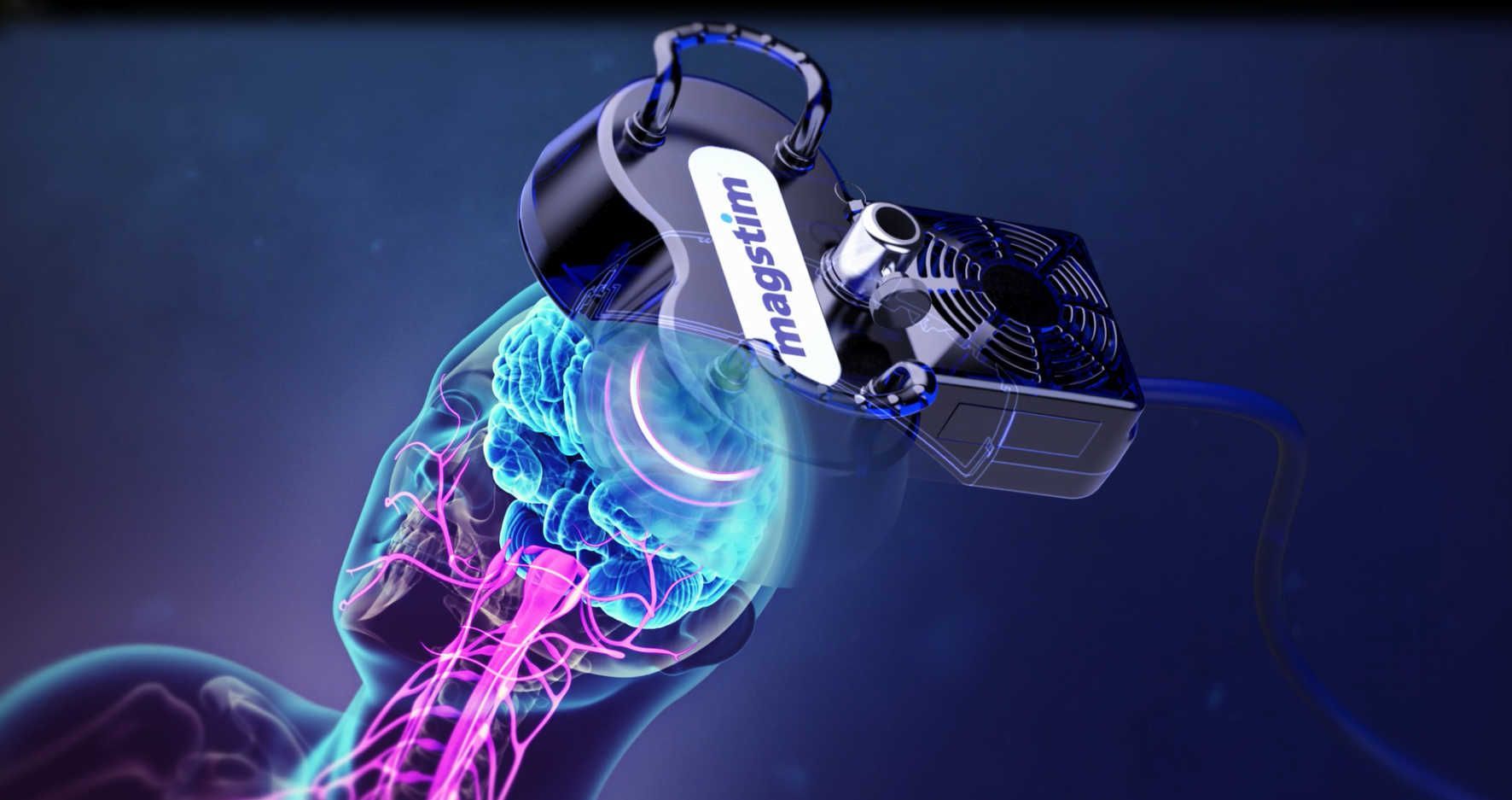
Frequently Asked Questions
TMS Therapy Patient Testimonial
TMS therapy gave hope and brought healing to Rod and Desiree - Real Magstim Patients
